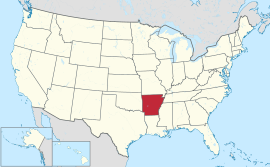The Mississippi River
The Mississippi
River is the chief river of the largest drainage system in
North America.Flowing entirely in the United States , it rises in northern Minnesota and meanders slowly
southwards for 2,530 miles to
the Mississippi River Delta at the Gulf of Mexico. With its
many tributaries, the Mississippi'swatershed drains all or parts of
31 US states and 2 Canadian provinces between the Rocky and Appalachian
Mountains. The Mississippi ranks as the fourth longest and tenth
largest river in the world. The river either borders or cuts through the
states of Minnesota, Wisconsin, Iowa, Illinois, Missouri, Kentucky, Tennessee, Arkansas, Mississippi,
and Louisiana.
Native Americans long lived along the Mississippi
and its tributaries. Most were hunter-gatherers or herders, but some,
such as the Mound builders, formed prolific agricultural societies. The
arrival of Europeans in the 1500s changed the native way of life as first
explorers, then settlers, ventured into the basin in increasing numbers. The
river served first as barrier – forming borders for New Spain, New
France, and the early United States – then as vital transportation artery and
communications link. In the 19th century, during the height of Manifest
Destiny, the Mississippi and several western tributaries, most notably
the Missouri, formed pathways for the western expansion of the United
States.Formed from thick layers of this river's silt
deposits, the Mississippi River Valley is one of the most fertile
agricultural regions of the country, which resulted in the river's
storied steamboat era. During the American Civil War, the
Mississippi's capture by Union forces marked a turning point towards
victory because of the river's importance as a route of trade and travel, not
least to the Confederacy. Because of substantial growth of cities and the
larger ships and barges that supplanted riverboats, the decades
following the 1900s saw the construction of massive engineering works such
as levees, locks and dams, often built in combination.Since modern development of the basin began, the
Mississippi has also seen its share of pollution and environmental problems –
most notably large volumes of agricultural runoff, which has led to the Gulf
of Mexico dead zone off the Delta. In recent years, the river has shown a
steady shift towards the Atchafalaya River channel in the Delta; a
course change would prove disastrous to seaports such as New Orleans. A
system of dikes and gates has, so far, held the Mississippi at bay but, due
to fluvial processes, the shift becomes more likely each year

Arkansas
Arkansas is a state located in the Southern region of the United States. Its
name is anAlgonquian name of the Quapaw Indians. The state's diverse geography ranges
from the mountainous regions of the Ozark and the Ouachita Mountains, which make up the U.S. Interior Highlands, to the
densely forested land in the south known as theArkansas Timberlands, to the
eastern lowlands along the Mississippi
River and the Arkansas Delta. Known as "the
Natural State", the diverse regions of Arkansas offer residents and
tourists a variety of opportunities for outdoor recreation.
Arkansas is the 29th most extensive and the 32nd most populous of the 50 United States. The capital and most
populous city isLittle Rock, located in the central portion of the state, a hub
for transportation, business, culture, and government. The northwestern corner
of the state, including the Fayetteville–Springdale–Rogers
Metropolitan Area and Fort Smith metropolitan area, is also
an important population, education, and economic center.
The Territory
of Arkansas was admitted to the Union as the 25th state on June 15, 1836. Arkansas
withdrew from the United States and joined the Confederate States of America during the Civil War. Upon returning to the
Union, the state would continue to suffer due to its earlier reliance on slavery and the plantation economy, causing the state
to fall behind economically and socially.White rural interests continued to dominate
the state's politics until the
Civil Rights movement in the
mid-20th century. Arkansas began to diversify its economy following World War II and now relies on its service industry
as well as aircraft, poultry, steel and tourism in addition to cotton and rice.
The culture
of Arkansas is available in
museums, theaters, novels, television shows, restaurants and athletic venues
across the state. Arkansans share the state's culture with tourists, whether it
be viewing architecture, attending a local festival, or eatingbarbecue and watching a football game. Despite
a plethora of cultural, economic, and recreational opportunities, Arkansas is
often stereotyped as a "poor, banjo-picking hillbilly" state, a
reputation dating back to early accounts of the territory by frontiersman in
the early 1800s. Arkansas's enduring image has earned the state "a special
place in the American consciousness" despite producing prominent successful
individuals such as Bill Clinton and Sam
Walton.Although
today the image is more pop culture and history than reality it remains a
prominent feature of Arkansas culture in part due to the state choosing to
capitalize on the positive aspects of the image, such as the Ozark Folk Center.

Seal

Flag

Немає коментарів:
Дописати коментар